Reflecting on how his Encyclical Letter, Laudato si’, is perceived in Africa, the Holy Father said, “Amazonia and Congo have oxygen reserves for the world. And both are exploited areas. Africa is even more so because of the minerals in which it is rich.”
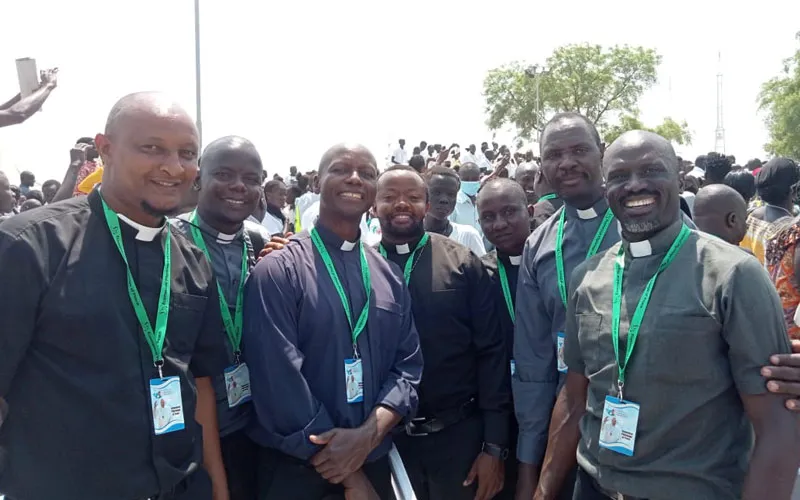 Credit: ACI Africa
Credit: ACI Africa
“A discourse on creation care is important for both countries,” he further said, adding, “The Jesuits in Kinshasa asked me if there will be a synod on the Congo, as there was for the Amazon. I replied that in that Synod and in the post-synodal exhortation there are already the elements and criteria that are useful for Congo as well.”
He encouraged Jesuits in South Sudan to be “brave and tender. Don’t forget that Ignatius was a great one for tenderness.”
He underscored the need for Jesuits in Eastern Africa to “be close to the people and the Lord. The basic attitudes of the Lord are: closeness, mercy and tenderness. Closeness is clear. Institutions without closeness and tenderness will also do good, but they are pagan. Jesuits must be different.”
(Story continues below)
In an interview with ACI Africa a day after the private encounter with the Holy Father in Juba, the Provincial Superior of the Jesuits in Eastern Africa Province described the February 4 meeting with the Holy Father as an “uplifting moment.”
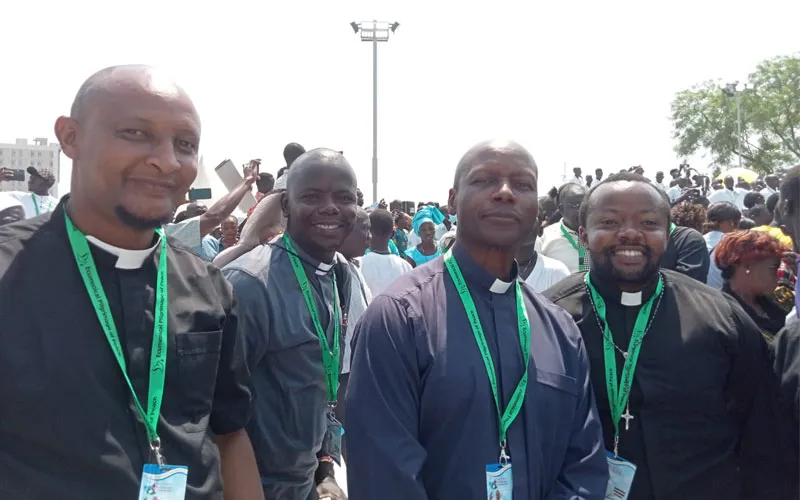 Credit: ACI Africa
Credit: ACI Africa
“It was a very nice moment and my head is still spinning from that encounter; it was amazing,” Fr. Kizito Kiyimba said at the conclusion of the Papal Mass on the grounds of Dr. John Garang Mausoleum.
The Jesuits who attended the meeting will live on the experience gained from the meeting with Pope Francis, Fr. Kiyimba further said, adding that the encounter "was conversational on the personal things, but sometimes he was teaching as Pope, so there are things there that will be useful for everyone.”
The Holy Father was “relaxed, personal,” the Ugandan-born Jesuit Priest told ACI Africa during the February 5 interview, adding, “We were privileged to be encouraged by our own brother who is a Pope both in his category as a Pope and also as a Jesuit.”
“We felt that we can now continue with our mission here in Eastern Africa as Jesuits having met the Pope," the Provincial of the Jesuits in Eastern Africa said, adding that the encounter with the Holy Father makes them feel "reinvigorated".
Meanwhile, during his meeting with Jesuits in DRC and South Sudan, Pope Francis addressed once again the question of whether he will resign the papacy, according to the February 16 Jesuit-run journal, La Civiltà Cattolica.
“I believe that the Pope’s ministry is ‘ad vitam.’ I see no reason why it should not be so,” the Holy Father said during his private meeting with Jesuits in Kinshasa-based Apostolic Nunciature on February 2.
Repeating information he had revealed in a prior interview, Pope Francis said that he signed a resignation letter two months after his election as Pope in case he should become incapacitated.
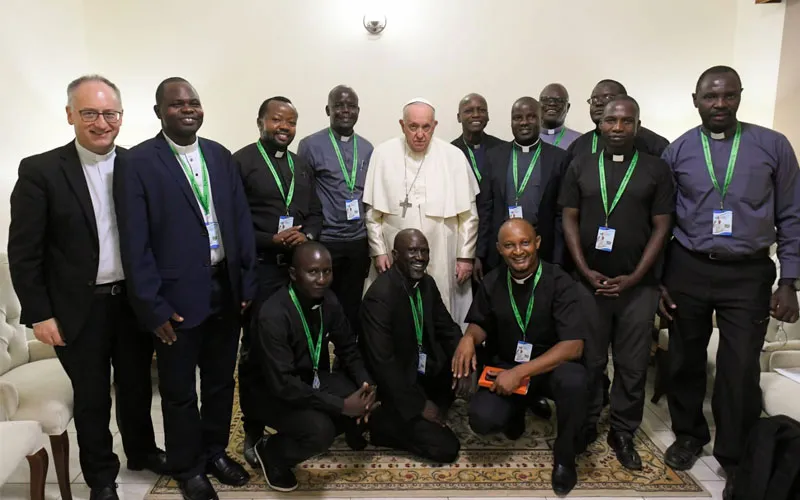 Credit: Vatican Media
Credit: Vatican Media
He said that he gave the letter to the Vatican’s Secretary of State at the time, Tarcisio Cardinal Bertone, but that he does not know now where the letter is.
“However, this does not at all mean that resigning popes should become, let’s say, ‘the fashion,’ a normal thing. Benedict had the courage to do it because he did not feel like going on because of his health. I for the moment do not have that on my agenda,” Pope Francis said.
“Think that the ministry of the great patriarchs is always for life,” he went on to say, adding, “The historical tradition is important.”
The 86-year-old Pontiff, who again addressed the question of his possible resignation in his private meeting with Jesuit Priests in South Sudan also said that if the Church listened to the gossip, it should change Popes every six months.
ACI Africa was founded in 2019. We provide free, up-to-the-minute news affecting the Catholic Church in Africa, giving particular emphasis to the words of the Holy Father and happenings of the Holy See, to any person with access to the internet. ACI Africa is proud to offer free access to its news items to Catholic dioceses, parishes, and websites, in order to increase awareness of the activities of the universal Church and to foster a sense of Catholic thought and culture in the life of every Catholic.
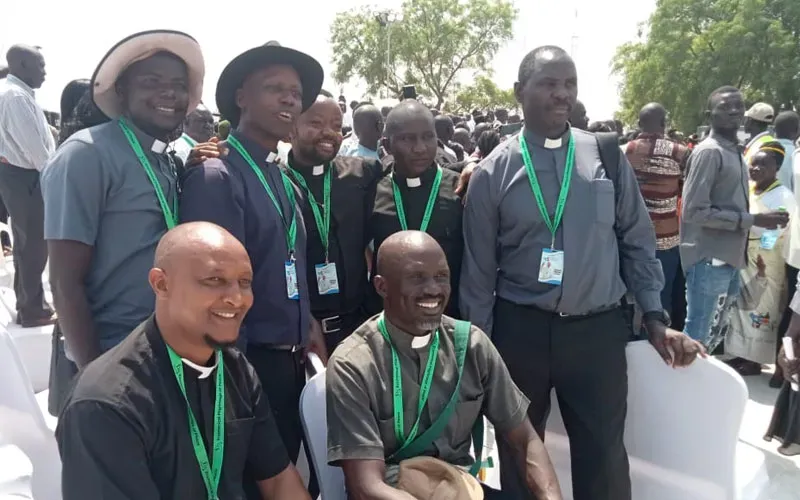 Credit: ACI Africa
Credit: ACI Africa



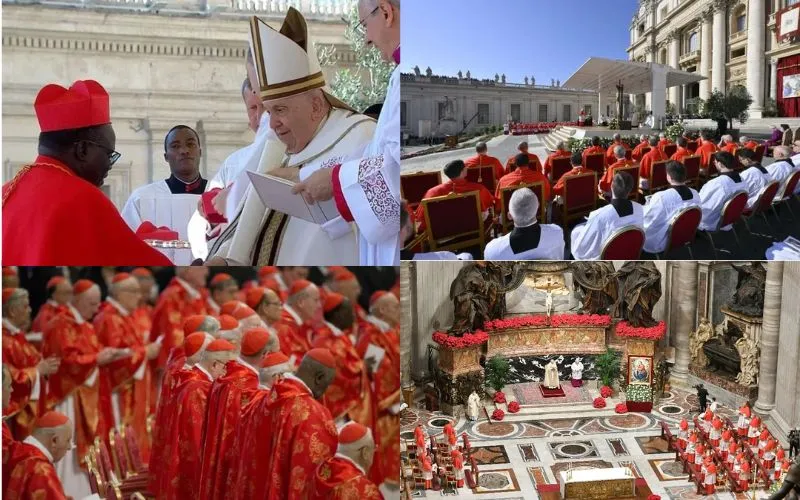
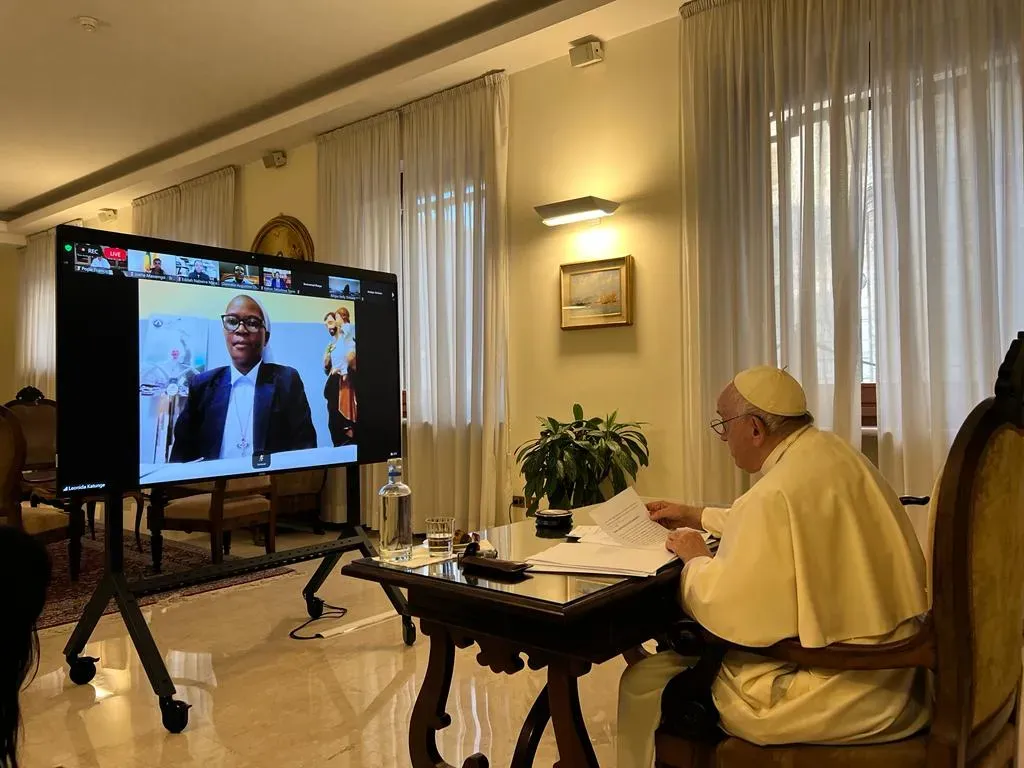 Pope Francis during the virtual dialogue with African Catholic students on Tuesday, November 1. Credit: PACTPAN
Pope Francis during the virtual dialogue with African Catholic students on Tuesday, November 1. Credit: PACTPAN Credit: ACI Africa
Credit: ACI Africa Credit: ACI Africa
Credit: ACI Africa Credit: Vatican Media
Credit: Vatican Media


